6 Possible Causes of Excessive Drooling in Babies and Easy Treatment Options
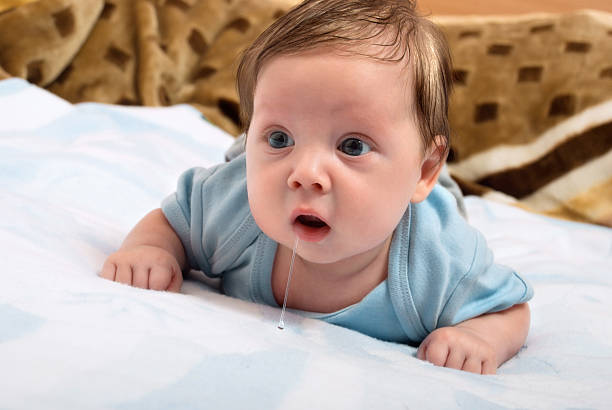
Parenting comes with its fair share of lessons, which, unfortunately, don’t come in a user manual. Why would you need a bib when your baby is just 2 months old? As your baby grows, you will likely have a heap of soggy bibs, blankets, and much more. In this article, we will discuss all issues related to drooling in babies.
What causes excessive drooling in babies? Why does my baby blow bubbles with their saliva all the time? Your concerns about excessive drooling in babies are valid, but before that, let’s talk about saliva in babies.
What Is the Importance of Saliva in Babies?
Saliva is a crucial component of the baby’s gut and overall health, thanks to its incredible benefits. This is a summary of the benefits of saliva in babies:
Saliva softens and moistens food, making it easy for the baby to swallow. Babies, unlike adults, require well-moisturized food to reduce the risk of choking.
Another benefit of saliva is that it washes away food debris that might stick to the gums, which keeps the enamel strong.
Saliva contains antimicrobial properties that break down harmful debris from a baby’s mouth. These properties in the saliva also prevent diseases that might affect the gum. During the teething stage, excess saliva prevents tooth decay.
What causes drooling in babies?
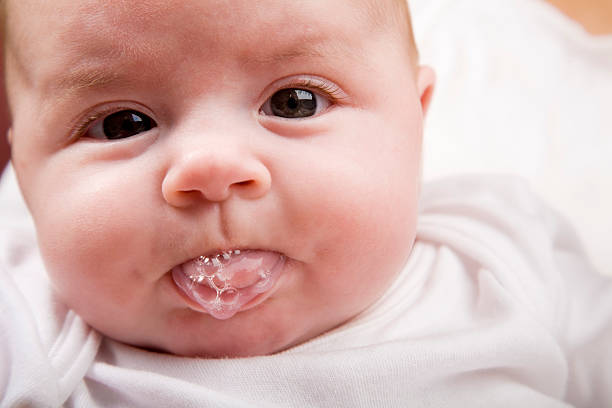
As a first-time parent, you might wonder, why is my baby suddenly drooling so much? These are the major triggers of excessive drooling in babies, as explained by experts:
- Medical condition.
- Reaction to certain medications.
- Developmental delay.
These three factors might lead to the underdevelopment of the muscles around the mouth, which can cause your baby to excrete excessive saliva.
What does it mean when a baby drools a lot? Should you be concerned when your baby drools non-stop? As a parent, excessive drooling and blowing bubbles in babies leave your mind with unanswered and unanswerable questions.
It is normal for babies under two to drool since the muscles responsible for swallowing saliva haven’t developed fully. Additionally, teething triggers drooling in babies under the age of two.
What are the Leading Causes of Excessive Drooling in Babies?
After intensive research, I established these as the leading causes of excessive drooling in babies:
1. Diet
When your baby starts producing excess saliva, check on their diet. There is adequate evidence that feeding babies on acidic foods increases drooling. Any time the baby feeds on acidic food, saliva flows like a fountain.
Besides acidic foods, feeding your baby sour or carbonated foods and drinks increases the risk of drooling. Have you ever asked yourself why pediatricians caution parents and caregivers against giving babies carbonated drinks or carbonated and sour foods? Now you know.
2. Neurological disorders
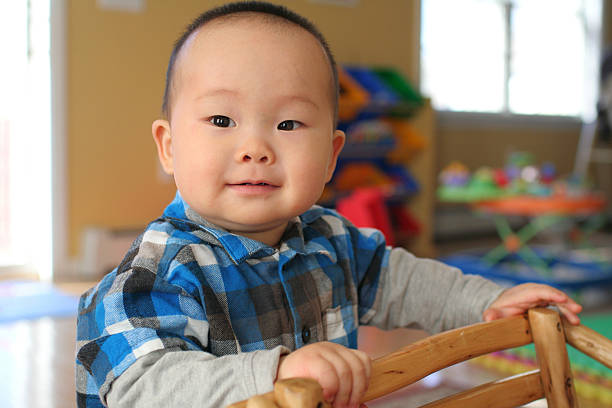
If you are not feeding your baby sour or acidic food or giving them carbonated drinks, but they are drooling a lot, they could be having a neurological disorder. Neurological disorders interfere with the baby’s body functions, especially the muscles, which increases the risk of drooling.
Neurological disorders such as Parkinson’s Disease, stroke, cerebral palsy, and amyotrophic lateral sclerosis (ALS) weaken the mouth muscles. The weakened mouth muscles make it hard for the baby to swallow or retain saliva in the mouth, resulting in drooling. Sialorrhea is a condition that is common in babies and is characterized by excessive drooling.
3. Age
Between 2 and 10 months, it is common to see babies drooling like their lives depend on it. At this age, the baby’s salivary glands are in beast mode, producing as much saliva as possible to prepare the baby for weaning. It is also at this age that the baby is teething.
During teething, the baby produces excess saliva, which could be the reason for the drooling and bubble-blowing. At this age, the baby’s control motors are weak, and they cannot control the production.
4. Allergies
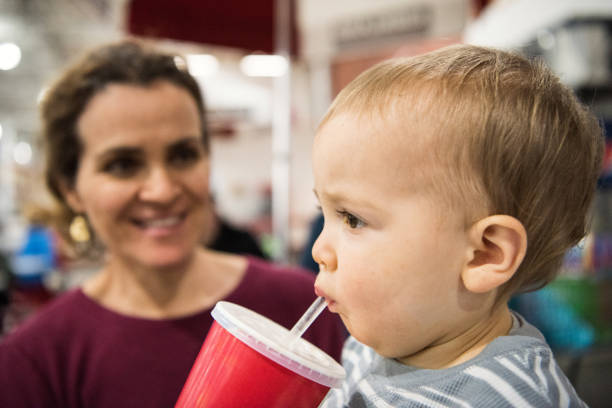
When you expose your baby to an allergen, you do not have control over how they react. Each baby reacts differently to an allergen, but it is common for babies to produce excess saliva.
If your baby manifests other symptoms, such as sneezing, runny nose, and itchy eyes, they will probably drool the next minute.
5. Infections
Have you ever thought how gross infections above the neck can be painful to babies? Babies are delicate and susceptible to infections such as strep throat, sinusitis, and tonsils. These infections come with their share of discomfort and leave the baby drooling helplessly.
6. Tumors
In some cases, your baby might be diagnosed with salivary gland tumors, which leaves them drooling. If you suspect that your baby has a tumor, visit a specialist for extensive diagnosis to determine whether it is malignant (cancerous) or nonmalignant (non-cancerous).
What are the effects of drooling in babies?
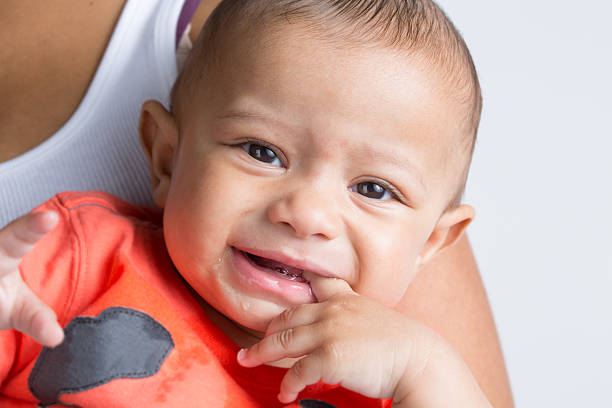
How does excess drooling affect babies? As a parent, you are always looking forward to knowing what the future holds for your baby regarding their health. These are the effects of drooling in babies:
· Drooling cleans up the baby’s gut.
Isn’t it ironic that drooling, which is seen as gross, helps babies clean their guts? The excess saliva in a baby’s mouth cleans the gums and teeth, keeping them healthy. Besides, the drool breaks down food, which helps digestion, given that the baby’s digestion system is still developing.
· Drool causes skin irritation.
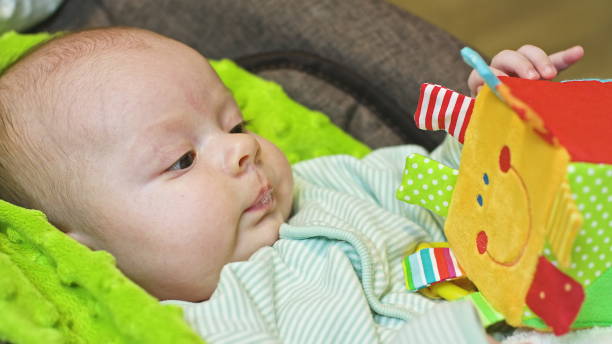
Excess saliva around the mouth might result in rash formation. Skin irritation causes painful rashes, which make the baby uncomfortable and the parent or caregiver unsettled. To prevent drool rash, apply a moisture barrier ointment around the baby’s mouth before sleep.
How can I stop drooling in a baby?

Now that we have discussed the triggers, possible causes, and effects of baby drooling, why not find solutions? If you are wondering how to stop baby drooling at home, this is the right place. The first step to stopping baby drooling is knowing the cause and possible triggers.
The best remedy for baby drooling is to check on their diet and health. Avoid giving them acidic or sour foods and giving your baby any carbonated drink, as this only worsens the drooling.
Applying Vaseline to the baby’s cheeks, side of the mouth, and around the neck is a sure way to reduce rashes caused by excessive drooling.
How can I treat excessive drooling in babies?
Although drooling is considered normal, too much can pose serious health issues. When babies drool too much, they risk swallowing saliva into the lungs, increasing the risk of pneumonia.
Before a doctor administers any treatment for drooling, they carry out multiple tests on the baby. The common treatment options for drooling in babies include:
a. Medication
The following are common medications that your pediatrician might prescribe for your baby to manage drooling:
- Scopolamine, commonly known as Transderm Scop.
- Glycopyrrolate, also known as Robinul.
b. Botox injections
Botox injections tighten facial muscles, especially around the cheeks, reducing drooling.
Parents who have used it admit that it effectively manages neurological disorders such as ALS and cerebral palsy. As your baby gets those shots, be prepared to deal with the tears that come with it.
c. Therapy
Your doctor may suggest you take the baby to therapy to manage drooling. The two most common therapies for babies are occupational and speech therapy. Speech and occupational therapies boost saliva control and muscle tone, crucial in managing drooling.
Bottom Line
Drooling is part of baby development. If you see your baby drooling, don’t worry—it is a stage and will pass. However, if you feel the baby is experiencing excessive drooling, contact your pediatrician as soon as possible for further guidance. May your baby overgrow the drooling and give you the best moments as a parent.